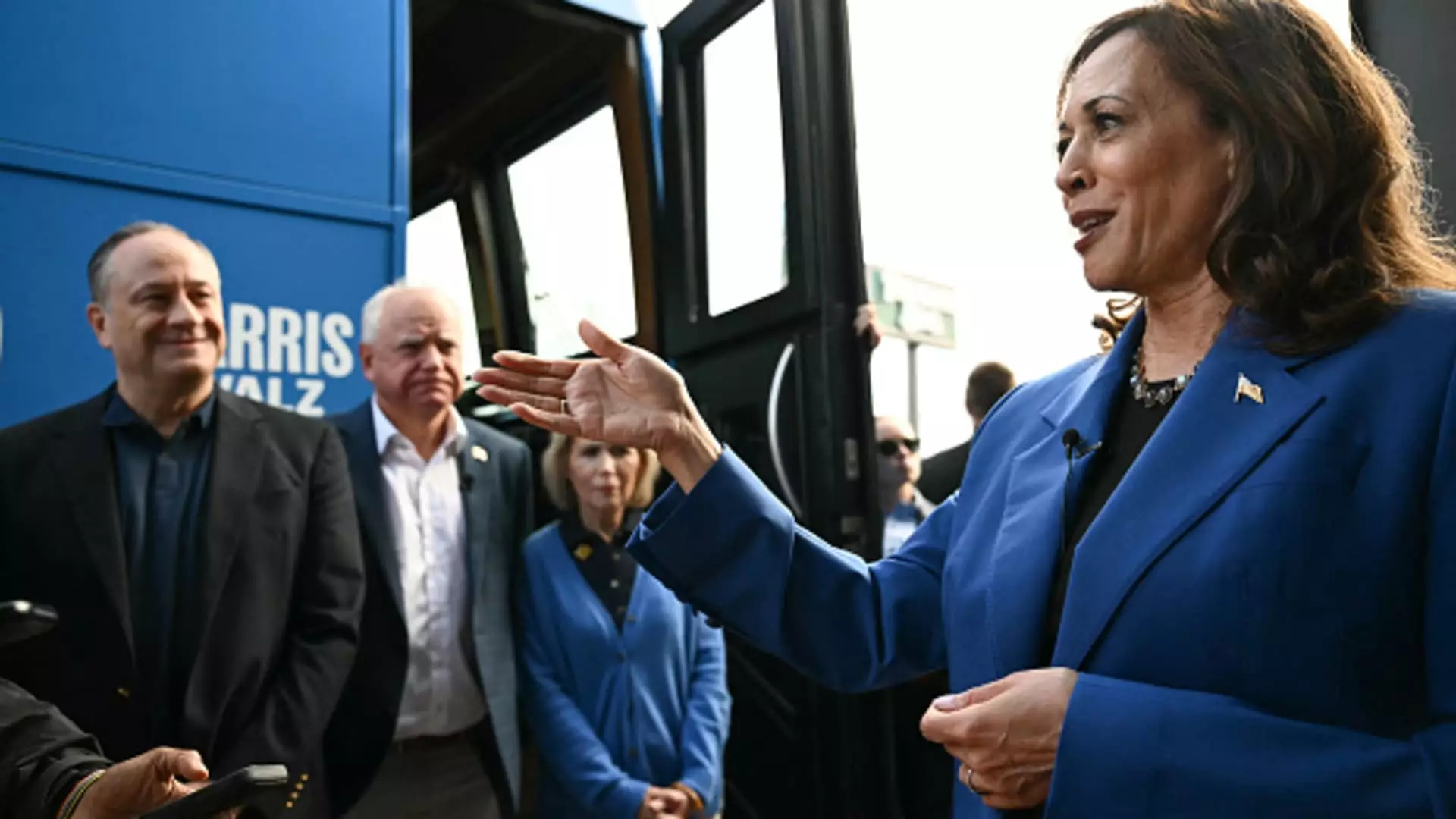The Democratic National Convention (DNC) is not merely a platform for party alignment and strategic declarations; it is a lavish affair underscored by the financial machinations that propel campaigns. The recent DNC held in Chicago illustrates this reality vividly, as major donors flock to VIP events designed to solidify their influence on the party and its candidates. Attendees soaking up the exclusive benefits of their monetary contributions provide a lens through which we can examine the intricate relationship between money and politics in contemporary America.
A Glimpse Behind the Velvet Rope
Those familiar with political conventions understand that VIP donor parties serve as both celebration and conduit for connections. For the Harris Victory Fund—often seen as a substantial pillar of the Democratic campaign—the week-long series of exclusive events entails fancy brunches, lavish cocktail parties, and even a tour of the iconic Wrigley Field. What the media often glosses over, however, is how these gatherings function as critical points for relationship-building and strategy development among the political elite and their benefactors.
The calendar kicks off dramatically with a welcome reception at Morgan’s on Fulton, a venue typical of the opulent atmosphere that surrounds major political gatherings. This initial event acts as more than just an introduction; it is an expression of gratitude and an invitation to deeper engagement. As donors are whisked away from luxurious accommodations like The Ritz Carlton and Four Seasons, their backers signal an unspoken promise—to leverage their resources in support of the campaign’s overall success.
These events, although shrouded in an air of festivity, carry weightier implications. With each cocktail served and each canapé enjoyed, connections are forged, and donors’ hopes and expectations for their investments are articulated. At core, these gatherings serve as essential fundraisers—powerful tools for fortifying financial networks and establishing political hierarchies.
The unavailability of in-person gatherings since 2016 adds an unprecedented level of enthusiasm to the DNC atmosphere. The void left by the pandemic has imbued this year’s events with energy and excitement, a sentiment echoed by both the attendees and the Harris campaign team. The stakes are elevated not just by the sheer eagerness to reconnect but also by recent political developments that add drama to the proceedings.
President Biden’s unexpected exit from the race has dramatically shifted the landscape and forged an alliance hailed by donors as a “political fairytale.” The endorsement of Harris in the wake of Biden’s exit has positioned her campaign as a vessel for dual aspirations—both from the party and its major donors. Contributing to this narrative, major donors relish their pivotal roles in nurturing candidates who are positioned to resonate widely with voters.
This excitement peaks at events like the “Path to Victory Brunch and Briefing,” held in the aesthetically pleasing Chicago History Museum. The allure of such gatherings extends beyond the culinary experience; they encompass an exchange of ideas, ensuring that donors feel involved in a reciprocal dialogue about campaign strategies and future policies.
Beyond the convivial atmosphere lies the financial reality that underscores these donor events. The Harris campaign has seen record-breaking fundraising hauls, leading to staggering totals that dwarf those of opponents. Following Biden’s endorsement, Harris raised an impressive $310 million in July alone, eclipsing Republican Trump’s $138.7 million. This rapid influx showcases how strategic donor cultivation can amplify a candidate’s power and resources dramatically.
These fundraising feats yield a tangible advantage in the political arena. As the Harris team strutted into August with $377 million in cash on hand—because of their superior fundraising capacity—strategic advantages become apparent. In contrast, the Trump team, despite previous fundraising acumen, finds itself at a significant disadvantage with a mere $327 million, illustrating the weight of cumulative influence exercised by major donors.
In essence, the series of exclusive donor events at the DNC goes far beyond mere socializing; they embody the nexus of politics and big money. As major players congregate in lavish settings, their contributions to campaigns are not just financial—they are gateways to political influence that can shape policy, candidacies, and ultimately, the direction of the Democratic Party. It’s a stark reminder that in the world of politics, the interplay between fundraising and mobilization creates a symbiotic relationship that serves not just the candidates at the helm but also those who elevate them through substantial financial backing.


Leave a Reply